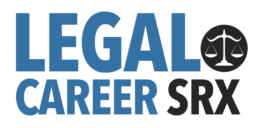Embarking on a legal claim can be a daunting process for those unfamiliar with the legal system. The initial steps are crucial in setting the foundation for a successful claim.
Identifying the Basis for Your Claim
The first step in any legal claim is to clearly identify the grounds upon which the claim is based. This involves understanding the legal principles that apply to your situation and determining whether there has been a violation of your rights or a breach of legal duty by another party.
Gathering Evidence and Documentation
Once the basis for the claim is established, it is essential to gather all relevant evidence and documentation. This may include:
- Photographs or videos of the incident
- Witness statements
- Official reports (e.g., police or accident reports)
- Correspondence and contracts
Understanding Statutes of Limitations
It is critical to be aware of the statutes of limitations that apply to your claim. These laws set the maximum time after an event within which legal proceedings may be initiated. Failing to file within this period can result in the loss of the right to sue.
Consulting with a Legal Professional
Seeking the advice of a legal professional can provide invaluable guidance throughout the claims process. An attorney can help interpret the law, advise on the strength of your claim, and outline the steps necessary to proceed with legal action.
Filing Your Claim: Procedures and Paperwork
Once you have determined the basis of your legal claim, the next step is to formally file it. This stage involves a series of procedural steps that must be meticulously followed to ensure your claim is properly presented to the court.
Choosing the Right Court: Small Claims vs. Higher Courts
The choice of court depends on the nature of your claim and the amount of damages sought. Small claims courts are typically used for disputes involving smaller monetary amounts, whereas higher courts handle more complex cases with larger sums.
- Determine the monetary value of your claim
- Assess whether it falls within the small claims court’s jurisdiction
- Consider the complexity of the case for higher court suitability
Completing and Submitting Legal Forms
Each court has specific forms that must be completed to initiate a legal claim. Accuracy and completeness are crucial.
- Obtain the necessary forms from the court or online
- Provide detailed information as required
- Review the forms for accuracy
- Submit the forms to the court, adhering to filing deadlines
Serving Notice to the Defendant
After filing your claim, the defendant must be legally informed of the action against them. This process is known as serving notice.
- Locate the defendant to serve the notice
- Use a professional process server or law enforcement if necessary
- Ensure proof of service is documented
Awaiting the Defendant’s Response
The defendant has a set period to respond to your claim once they have been served. Their response will dictate the next steps in the legal process.
- Monitor the deadline for the defendant’s response
- Be prepared to proceed if the defendant contests the claim
- Consider the possibility of a default judgment if the defendant fails to respond
Throughout this phase, having an experienced legal team can be invaluable in navigating the complexities of legal procedures and paperwork.
The Discovery Phase: Building Your Case
During the discovery phase, both parties involved in a legal dispute have the opportunity to exchange information that is pertinent to the case. This phase is crucial for building a strong argument and preparing for potential trial. It allows each side to understand the evidence that the other side may present, and to clarify facts that are in dispute.
Interrogatories and Depositions
Interrogatories are written questions that one party sends to the other, which must be answered under oath. Depositions involve oral questions asked in person, typically with a court reporter present to create a transcript. Both tools are essential for gathering detailed information from the opposing party or witnesses.
Requests for Production of Documents
Parties may request documents that are relevant to the case, such as contracts, emails, or medical records. This process ensures that both sides have access to the necessary documents to support their claims or defenses.
Admissions of Fact
Admissions of fact are a set of statements sent to the opposing party, which they must admit or deny. These admissions can simplify the trial by establishing certain facts beforehand, thus narrowing the issues that need to be argued.
Expert Witness Testimonies
Expert witnesses can provide specialized knowledge that is beyond the average person’s understanding. Their testimonies can be pivotal in explaining complex issues, such as those involving technical or medical matters, to the judge or jury.
The discovery phase is a strategic period where the groundwork is laid for the success of a case. It is a time for meticulous preparation and careful analysis of all the information that may influence the outcome of the legal proceedings.
Negotiation and Settlement: Avoiding Trial
Understanding Settlement Offers
Settlement offers are a critical component of the legal claims process, often providing a quicker resolution than going to trial. Parties should evaluate the strength of their case, the potential costs of continued litigation, and their own tolerance for risk when considering settlement offers. It’s important to understand that settlement amounts may vary widely based on factors such as the severity of the claim, the clarity of liability, and the parties’ desire to avoid the uncertainties of a trial.
The Role of Mediation in Resolving Disputes
Mediation is a voluntary process where a neutral third party, the mediator, assists the disputing parties in reaching a mutually acceptable agreement. The process is confidential and allows for creative solutions that a court might not be able to provide. Mediation can save time, reduce costs, and preserve relationships that might be damaged by a contentious trial.
Calculating a Fair Settlement
Determining a fair settlement involves assessing various aspects of the claim, including medical expenses, lost wages, future costs related to the injury or issue, and non-economic damages like pain and suffering. Each party’s negotiation strategy and the strength of the evidence can significantly influence the final settlement figure.
Drafting and Finalizing a Settlement Agreement
Once a settlement is reached, it must be carefully documented in a settlement agreement. This legally binding contract outlines the terms of the settlement, including payment amounts and timelines. It’s crucial to review this document thoroughly, ideally with legal counsel, to ensure that it accurately reflects the agreement and protects the interests of the party.
Going to Trial: What to Expect
When a legal dispute progresses to trial, it marks a critical phase where each party presents their case in front of a judge or jury. The trial process is intricate and governed by strict procedural rules.
Jury Selection and the Role of the Jury
The trial begins with jury selection, a process known as voir dire, where attorneys for both sides question potential jurors to ensure an impartial jury is empaneled. The jury’s role is to weigh the evidence, assess credibility, and render a verdict based on the law and facts presented.
Presenting Evidence and Arguments
Once the jury is set, the plaintiff and defendant have the opportunity to present their evidence and arguments. This includes opening statements, witness testimonies, and the introduction of physical or documentary evidence to support their claims or defenses.
Cross-Examination Techniques
A pivotal part of the trial is the cross-examination, where lawyers challenge the credibility and testimony of opposing witnesses. Effective cross-examination can expose inconsistencies or weaknesses in the other side’s case.
Closing Arguments and Jury Deliberation
The trial concludes with closing arguments, allowing each side to summarize their case and persuade the jury one last time. Afterward, the jury deliberates in private, aiming to reach a unanimous decision or, in some cases, a majority verdict.
The trial phase is a high-stakes environment where the outcome can significantly impact the lives of those involved. For meso survivors and warriors, the trial may represent a culmination of a long fight for accountability, compensation, and justice against asbestos companies. Legal assistance is crucial during this phase to navigate the complexities of trial proceedings.





